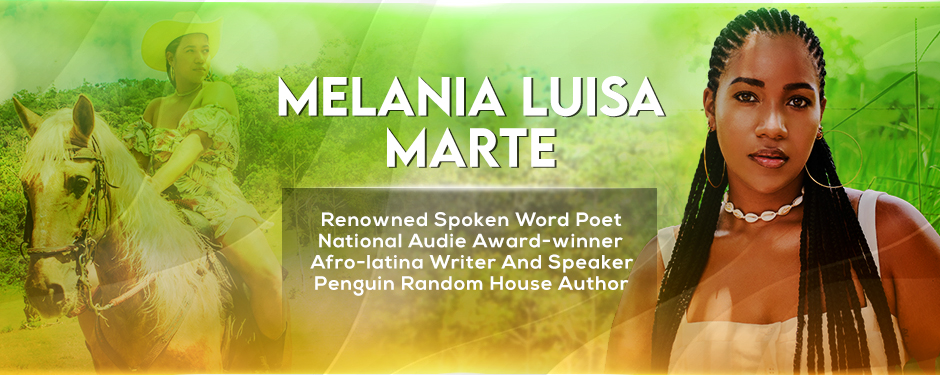About: MELANIA LUISA MARTE- PLANTAINS AND OUR BECOMING
RENOWNED SPOKEN WORD POET · NATIONAL AUDIE AWARD-WINNER · AFRO-LATINA WRITER AND SPEAKER · PENGUIN RANDOM HOUSE AUTHOR
A rousing, beautifully observed, and tender-hearted debut poetry collection about identity, culture, home, and belonging—for fans of Jasmine Mans and Fatimah Asghar
“We, children of plátanos, always gotta learn to play in everyone else’s backyard and somehow feel at home.”
Poet and musician Melania Luisa Marte opens PLANTAINS AND OUR BECOMING by pointing out that Afro-Latina is not a word recognized by the dictionary. But the dictionary is far from a record of the truth. What does it mean, then, to tend to your own words and your own record—to build upon the legacies of your ancestors?
In this imaginative, blistering poetry collection, Marte looks at the identities and histories of the Dominican Republic and Haiti to celebrate and center the Black diasporic experience. Through the exploration of themes like self-love, nationalism, displacement, generational trauma, and ancestral knowledge, this collection uproots stereotypes while creating a new joyous vision for Black identity and personhood.
Moving from New York to Texas to the Dominican Republic and to Haiti, this collection looks at the legacies of colonialism and racism but never shies away from highlighting the beauty—and joy—that comes from celebrating who you are and where you come from. PLANTAINS AND OUR BECOMING is “a full-throated war cry; both a request for anointment and the responding bendición” (Elizabeth Acevedo).

